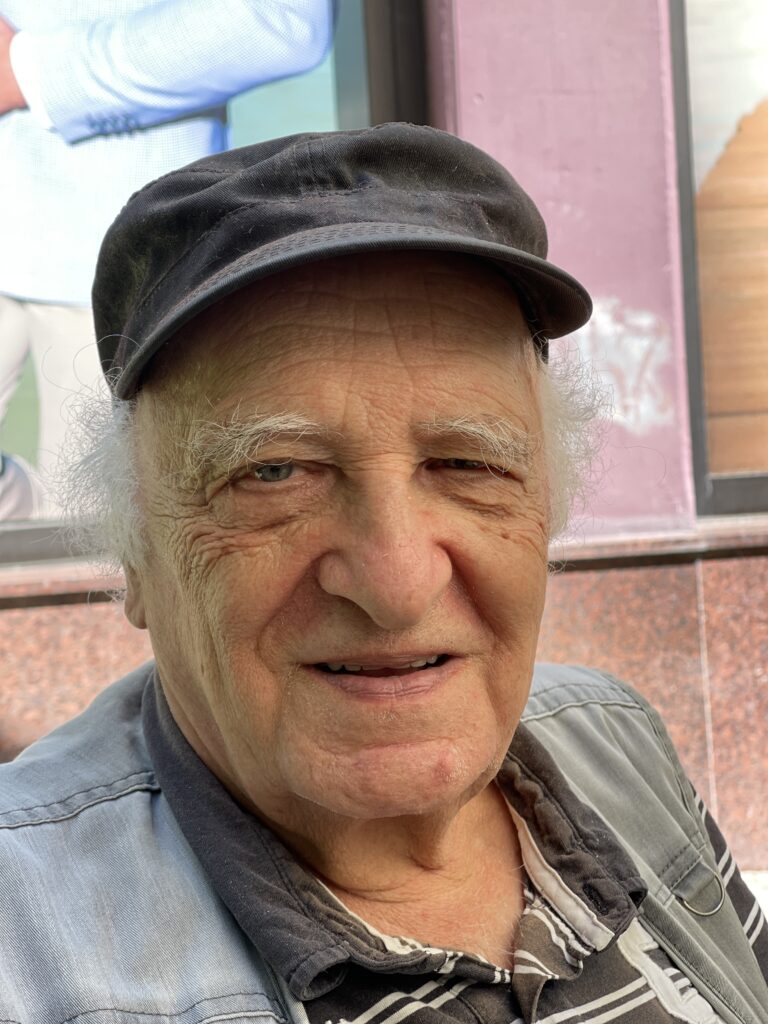OBITUARY
Filip David
1940-2025

One of the most significant intellectuals and writers of our time, Filip David (1940–2025), was my friend – and the kind of friend that deserves the word to be written with a capital F.
Filip David was a Jewish-Serbian writer, essayist, playwright, screenwriter, long-time editor of the Drama Department at Belgrade Television, and a full professor of dramaturgy at the Faculty of Dramatic Arts in Belgrade. He loved football so much that nothing could upset him more than seeing his team lose. He was friends with Danilo Kiš, Mirko Kovač, Borislav Pekić, and Pavle Ugrinov – a literary circle in which he himself held a prominent place. He observed reality with a critical eye, while fantasy and mysticism were his natural allies. His works – The House of Memory and Oblivion, A Dream of Love and Death, The Prince of Fire, Are We Monsters, and Worlds in Chaos – were already worthy of awards by their titles alone.
David’s talent for writing emerged early, back when he was still in primary school. He had already won around twenty awards by the time he finished his education. He graduated in Yugoslav and world literature at the Faculty of Philology, and in dramaturgy at the Academy for Theatre, Film, Radio and Television in Belgrade. He was one of the founders of Independent Writers (1989) and the Belgrade Circle (1990) – associations of notable, independent intellectuals. He was also one of the initiators of the independent literary association Writers’ Forum.
Many mourn the passing of a great writer and intellectual; I grieve the loss of a friend and mentor. The night before his death, he asked me to visit, and I had the honour of being the last guest in his home. We spoke about the transfer of books to the Museum of Books and Travel and the Museum of Serbian Literature of the Association for Culture, Arts and International Cooperation, Adligat – of which he was a founding member and which he had supported for sixteen years. I held his bony fingers tightly, kissed his cheek in friendship, and promised we would see each other again soon. I was devastated when I realised the next morning that it was a promise I would not be able to keep – but I will fulfil many others, unspoken yet ever-present promises of mutual respect, with a firm resolve that certain values must never be compromised.
We often sat together in the circle of writers and intellectuals that gathered around him every day at noon in the city centre. Each time, exceptional people of different paths and careers would be there. The conversations spanned politics and literature, everyday matters, and elevated themes alike. Whenever I joined, the topic would often shift to Adligat’s projects.
“The greatest adventure – far greater than travelling through Amazonian jungles, African deserts or peering into volcanic craters – is creating such museums in Serbia,” Filip David would say of the museums to which he had donated books from his personal library for years, often with dedications, as well as personal belongings and his beloved, slightly worn, old typewriter.
Filip David accepted to be part of Adligat alongside his fiercest political opponents, understanding that our country needed a cultural endeavour that rose above everyday disputes and divisions. Moreover, he played a significant role in making it clear to everyone how independent we were and how deeply committed we remained to our work – to books, to the preservation of memory, always with reverence for true values.
Filip David was a man of freedom and tolerance, a cosmopolitan European who, with all his soul, loved our country.
As a Serbian Jew, David hid with his mother at the foot of Mount Fruška Gora during the Second World War, while some fifty members of his family – including most of his father’s siblings and cousins – perished in the Sajmište camp, in Jasenovac, and during the Kragujevac massacre. Yet the past was never a burden to him, but rather a source of inspiration. That harrowing experience gave rise to some of his finest works.
Filip David made a profound contribution to the quality of RTS’s drama programming, giving a platform to silenced voices from Romania and other censored regions. In 1993, he was banned from entering the television building for insisting on the observance of the professional code of ethics, which prohibited war propaganda, the incitement of racial and national hatred, and the denial of truthful information.
Always modest and outwardly quiet, he carried himself like a serene teacher imparting his most important lesson: how to fight for true values. He never spoke a harsh word or raised his voice. His calmly expressed views echoed farther and cut deeper than the fiercest outbursts of his opponents. Even in death, he was censored – Politika refused to publish his obituary with a photograph showing him with a whistle in his mouth, taken by one of their own journalists during the 1996/97 protests.
“One of the fundamental problems of our time is that there were too many who simply stood and watched,” Filip David once wrote. The name Filip David will forever be synonymous with raising one’s voice, standing up for freedom, equality, democracy, and creating a literary legacy without equal. Could the outcome of a life be any more complete than that?
In an interview for Književna reč in the mid-1990s, Filip David said: “There are two paths – the path of dreams and the path of reality – and we walk both at once.” He convinced me of that simultaneity, so I am entirely certain we will meet again; in a dream or in waking life, it makes no difference.
by Viktor Lazić
Adligat